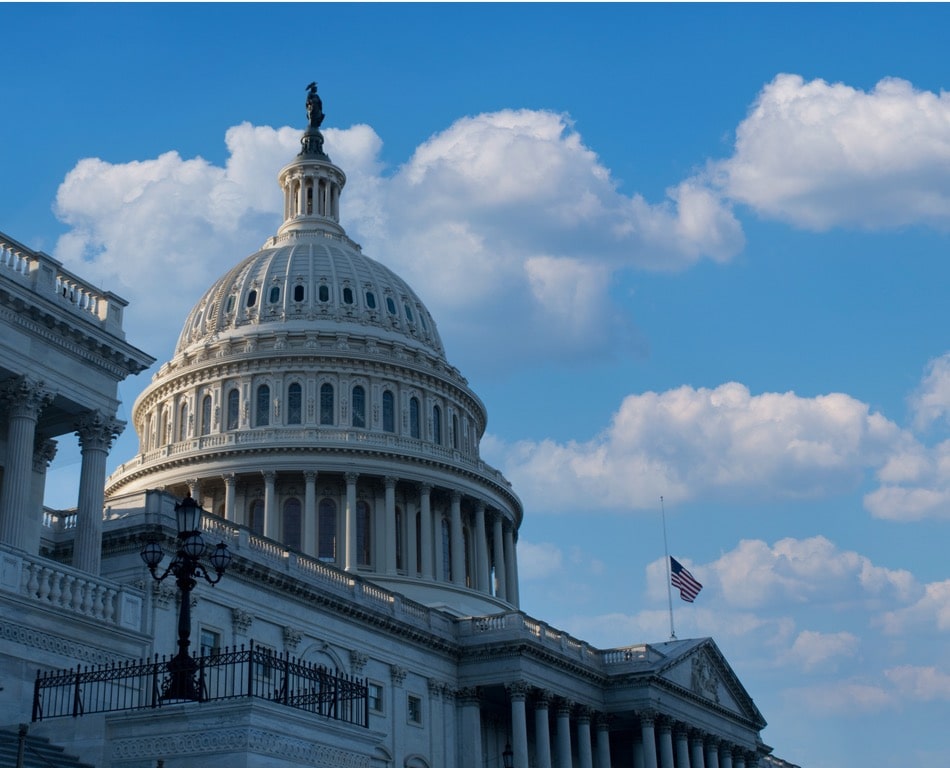On September 27, the U.S. House Committee on Small Business held a hearing entitled “Action Through Innovation: Private Sector Solutions to Recouping Stolen Pandemic Loan Funds.” The hearing touched on different solutions the Small Business Administration (SBA) could take to recoup fraudulent loans issued as part of pandemic lending programs.
“When the pandemic started, the SBA took on an outsized role in restarting our nation’s economy. The PPP and EIDL programs were vital to saving small businesses, but that fact does not excuse $200 billion in fraud,” explained Chairman Roger Williams (R-TX). “It’s a top priority of this Committee to recoup these stolen funds, and yesterday’s hearing looked at new, innovative private sector solutions to do just that. I’m very grateful for our four witnesses, and we’ll continue our work on holding these fraudsters accountable.”
Among the witnesses called to give testimony was whistleblower attorney Dean Zerbe, who serves as a Senior Policy Analyst at the National Whistleblower Center. Zerbe outlined how a whistleblower award program, like those at the IRS and SEC, would allow the SBA to incentivize insiders to report fraud. Zerbe noted that in addition to recouping money, a whistleblower award program would save time and resources and help deter future fraud.
Zerbe, who previously was the lead staffer for Senator Chuck Grassley (R-IA) and was the driving force behind the 2006 IRS whistleblower statute which modernized the IRS Whistleblower Program, began his testimony by highlighting the long history of bipartisan support for whistleblower award programs as well as the empirical evidence showing that these programs are highly effective.
Zerbe pointed to the over $70 billion collected under the whistleblower provisions of the False Claims Act, the over $6 billion collected through the IRS Whistleblower Program, and the over $6 billion collected through the SEC Whistleblower Program as clear indicators that whistleblower award programs help the government recoup funds from fraudsters.
“Clearly, the whistleblower incentives programs are working – identifying fraud that would otherwise go undetected… enabling and assisting the work of government,” Zerbe stated. He added that “[b]ipartisan support for whistleblower award programs has a long tradition – and my hope would be that the Committee would continue that good tradition as it considers similar legislation to create a whistleblower award program for the SBA.”
Zerbe explained how the SBA’s efforts to track-down fraudsters who took out fraudulent loans through the Paycheck Protection Program (PPP) and COVID Economic Injury Disaster Loan (COVID EIDL) programs would be bolstered by an effective whistleblower award program.
“With a whistleblower incentive program you are encouraging whistleblowers and their advisors to spend the necessary time, cost and energy to make a strong filing that is of immediate use to the agency (documents, suggested information/discovery requests, names of additional people to contact, client lists, etc.),” Zerbe stated. “The goal of a good whistleblower filing is to – as much as possible – put the fraud on a t-ball for the agency to hit.”
“Whistleblower award programs are the great friend to honest taxpayers – first, in recovering taxpayer dollars and second, better targeting government enforcement efforts on those individuals seeking to engage in fraud and evasion,” continued Zerbe.
“All this speaks to the fact that bringing whistleblowers into the work of the SBA will help stretch and extend limited existing SBA staff resources – and better focus those resources to be more effective,” Zerbe added.
David Colapinto, a whistleblower attorney at Kohn, Kohn & Colapinto agrees with Zerbe that an SBA whistleblower award program would greatly enhance the SBA’s effectiveness in cracking down on pandemic loan fraud.
“SBA and PPP fraud is often committed by individuals and small businesses which make it hard for the government to detect the fraud, but current law that requires whistleblowers to file a federal lawsuit in order to report and collect an award can be difficult,” Colapinto explains. “This proposed program will be streamlined and provide more protections for whistleblowers to come forward. The net result will enable the government to go after more fraud and recover more money stolen by unscrupulous fraudsters during the pandemic and from other SBA programs. It will also assist the SBA in protecting taxpayers and honest businesses.”
Chairman Williams stated that he and his team are exploring the idea of creating a whistleblower award program for the SBA. In March, Senator Catherine Cortez Masto (D-NV) introduced a bill that would set up such a program at the Consumer Financial Protection Bureau (CFPB).
“It was heartening to see the Chairman so engaged in looking at whistleblowers as part of the solution to recovering $200 billion in fraud,” Zerbe tells WNN.
“An SBA whistleblower award bill is badly needed to fill enforcement gaps that exist under current law to combat SBA and PPP fraud, which ran rampant during the pandemic,” adds Colapinto. “By creating an administrative remedy that provides whistleblowers with anonymity and mandatory awards if the government recovers funds based on the whistleblower’s information it will encourage more whistleblowers to report fraud and bring more fraudsters to justice.”
